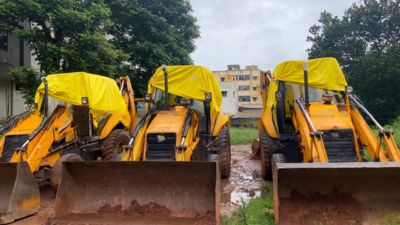The Supreme Court on Friday strongly criticized the Kheda municipality in Gujarat for threatening to demolish the home of a man co-accused in a trespassing case [Javed Ali Mahebubmiya Saiyed v. State of Gujarat and anr].
A bench comprising Justices Hrishikesh Roy, Sudhanshu Dhulia, and SVN Bhatti firmly stated that bulldozers cannot be used to bypass legal procedures.
“In a country where the rule of law governs State actions, the misconduct of one family member cannot justify punitive actions against other family members or their legally constructed residence. Allegations of involvement in a crime are not grounds for property demolition,” the Court remarked.
The bench noted that the criminal allegations against the accused have yet to be proven in a court of law and cautioned against threatening demolitions without following legal procedures, emphasizing that such actions could be perceived as undermining the law.
The Court ordered the Gujarat government to respond within four weeks and maintained the status quo on the property in question. The case involves a plea from a man whose family has resided in the house for over 20 years. His counsel pointed out that after a criminal complaint was filed on September 1, the municipality threatened to demolish his home.
This case follows the Supreme Court’s earlier concerns expressed on September 2, where a bench of Justices BR Gavai and KV Viswanathan criticized the growing trend of demolishing the properties of those accused of crimes. They indicated that guidelines would be issued to address such instances of “bulldozer justice.”
Senior Advocate Iqbal Syed, along with a team of lawyers, appeared for the petitioner, Javed Ali Saiyed.

















